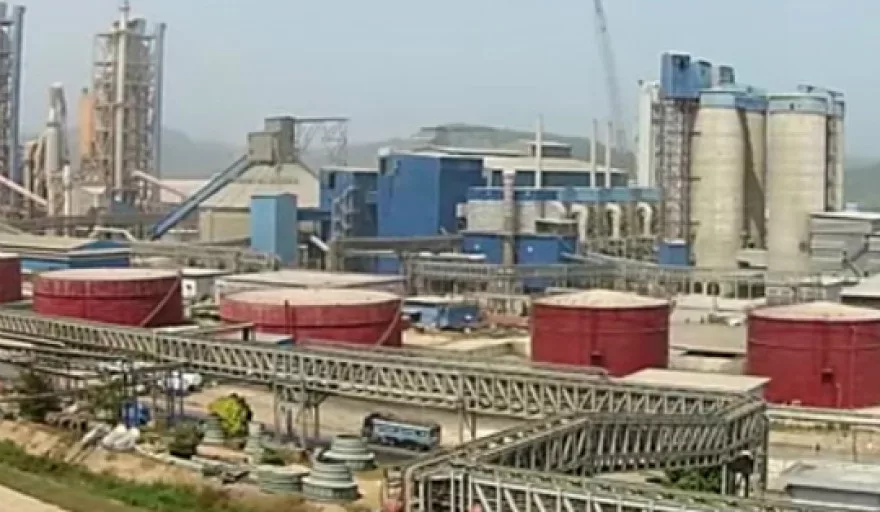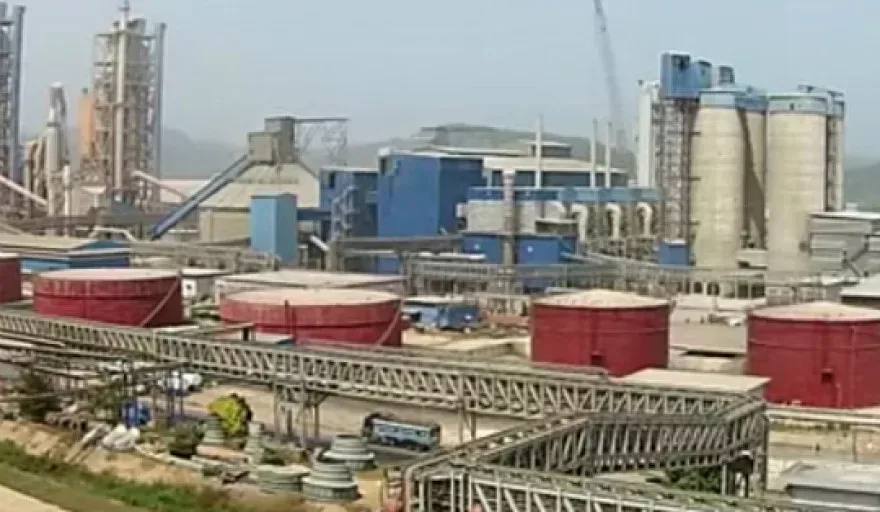
Following the news that Nigeria has attained-self sufficiency in the production of cement and is now subsequently an exporter of the commodity, the Federal Government has commended Dangote Cement for its influential role in spearheading the facilitating integration policy that was introduced.
Dedicating the achievement to the globally-renowned construction heavyweight, the Minister for Solid Minerals Development, Dr Kayode Fayemi stated that the Government was happy with the leadership roles played by Dangote Cement in executing the backward integration policy in the cement industry.
The success story represents a year of adjustments and was unveiled during the Company’s Managing Director, Onme Van der Weijde’s declaration of Dangote Cement’s 2016 financial results; whereby he announced that the Company had commenced exportation of cement to Nigerian’s neighbouring countries.
He said: “We exported nearly 0.4 metric tonnes (Mt) into neighbouring countries and in doing so, we achieved a great milestone by transforming Nigeria into a net exporter of cement.
“This is a remarkable achievement, given that only five years ago, in 2011, Nigeria was one of the world’s largest importers, buying 5.1Mt of foreign cement at huge expense to our balance of payments. We will increase our exports substantially in 2017.”
Fayemi compounded this statement by reiterating that, until very recently, Nigeria imported more than 60 percent of its cement but can now produce enough internally to not only meet local demands, but to also export to other nations.
Using the word “commendable”, The Minister continued: “As you all know, as the Federal Government moves to diversify the economy away from oil, two areas the Government is focusing on are agriculture and solid minerals, and this is why we are embarking on our tour of mining operations across the country to know the challenges they face and what can be done to tackle these challenges.
“What Dangote is doing is marvellous. We need to commend them on the way they led the backward integration policy to turn around our fortunes in the cement industry.
“I am delighted to see the development here… And we are looking at how we can replicate the successes in the cement industry in other non-oil sectors of our economy.”
Reducing the dependence on oil
Fayemi added that besides simply increasing its reliance on previously peripheral sectors like mining, agriculture and minerals, there has also been a heightened emphasis on capacity and industry trends; subsequently addressing how big the various plants are, and how environmentally friendly they are being run. Again, Dangote Cement is being used as the yardstick in meeting these new efficiency targets.
“We need to collaborate and partner in these areas, at this time where the Government is trying to reduce the dependence on oil,” he said. “We need to turn around our mineral resources just as what obtained in cement sector. When you look at our solid mineral industry, there is a wide gap between what we can produce and what is consumed, and importation in this sector is huge.”
A natural frontrunner in this drive, Dangote Cement operates the largest cement mining operations in the country as well as the largest coal mining site; a combination of the two remaining pivotal to the country’s diversification ambitions at present.
Fayemi noted that this generation of power as an alternative to gas is even more important given the current and incessant disruption to the supply of gas in the country, adding that more than 50 percent of the power needed for Dangote’s cement plants were generated from coal too; instilling a further level of vertical integration into the overall project
During the announcement, the Ibese Plant Director, Amando Martines then made a presentation on the facility, and how it has been expanded from two lines of six million metric tons per annum to four lines which can now produce 12 million metric tons per annum.
All told, Dangote Cement is Africa’s leading cement producer with nearly 46Mta capacity across Africa, and is a fully-integrated quarry-to-customer producer with a production capacity of 29.25Mta in Nigeria.
Its Obajana plant in Kogi state, Nigeria, is the largest in Africa with 13.25Mta of capacity across four lines.
The Ibese plant in Ogun State has four cement lines with a combined installed capacity of 12Mta, while the Gboko plant in Benue state has 4Mta. Moving forward, and to further extend its influence on the country’s industry diversification initiative, the Company plans to build new factories in Ogun State (3-6Mta) and Edo State (6.0Mta).






























